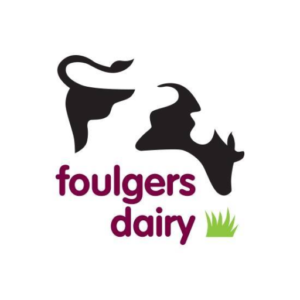5 Health Benefits of Milk This World School Milk Day
World School Milk Day is annually acknowledged in over 40 countries around the world on the last Wednesday of September, it celebrates the health benefits of providing milk to schoolchildren. The first World School Milk Day was celebrated in September 2000!
The Path to Free School Milk
In 1945, Ellen Wilkinson was appointed as Minister of Education, the first woman in British history to hold the post. As an avid campaigner against poverty, in 1946 she managed to persuade Parliament to pass the School Milk Act. This meant that all schoolchildren (under eighteen) would be granted with one-third of a pint of milk each school day for free.
Did you know… Margaret Thatcher withdrew free school milk from children over 7 in 1971, earning her the nickname, ‘Thatcher, the Milk Snatcher’.
Today, all children in the UK that are aged 5 and under are entitled to one free 189ml portion of milk – a cost which is funded by the Government.
5 Health Benefits of Milk
World School Milk Day celebrates the free milk that children are afford at school, and why we should hope to continue to have free school milk for the next 73 years or more.
Dairy has recently come under attack with various myths and misunderstanding about our delicious produce, to help understand the central role that milk can play in a healthy diet, we’ve highlight 5 benefits for parents and children:
1. Milk, hard cheese and yogurt are the main providers of calcium and iodine to the UK diet. Childhood is an important time for growth and development and getting enough calcium is an essential part of building bones!
2. Whole milk should be given to children until they are 2 years old, as they need the extra energy and vitamins it contains. Semi-skimmed milk can be introduced once your child is 2 years old, as long as they’re a good eater and they have a varied diet.
3. Milk is full of vitamin D, vitamin B12 and vitamin A! These vitamin help maintain healthy bones, healthy red blood cells and nerve tissue and supports the immune system.
4. Milk is a great source of protein! Protein is necessary for many vital functions in your body, including growth and development. The two types of protein found in milk – casein and whey protein – are both considered high-quality proteins.
5. Phosphorus and calcium found in dairy products are crucial to your child’s tooth development. Casein is another protein found in milk that creates a thin film across tooth enamel, which prevents decreased calcium and phosphorus absorption.
In other words, milk packs quite a punch when it comes to nutrition – and you don’t have to drink a gallon to reap the benefits. Today, on World School Milk Day, let’s all proud a glass of milk and enjoy all of its natural goodness!
World Milk Day is celebrated this year on Wednesday, 25th September 2019.
Get fresh, local milk delivered, every day. Check local delivery here or call our friendly team on 01473 784999 to discuss placing a regular order with Foulgers Dairy.

